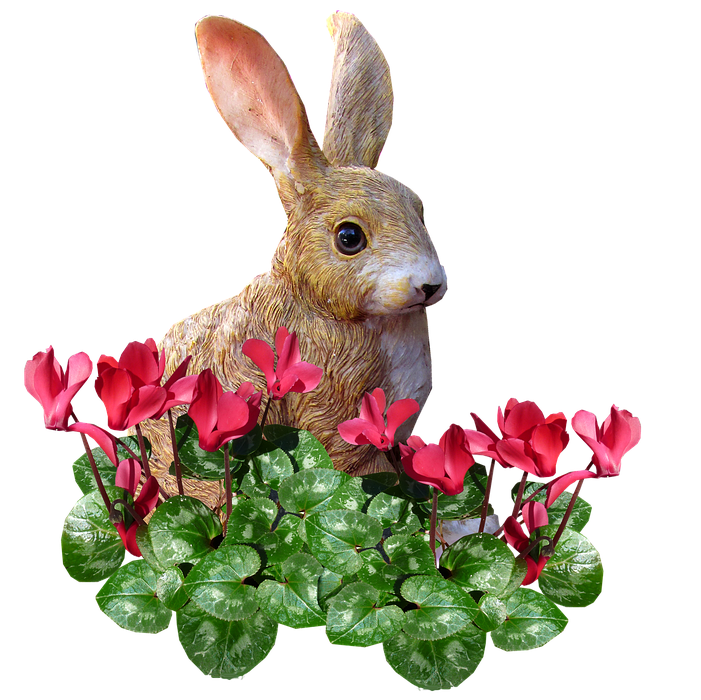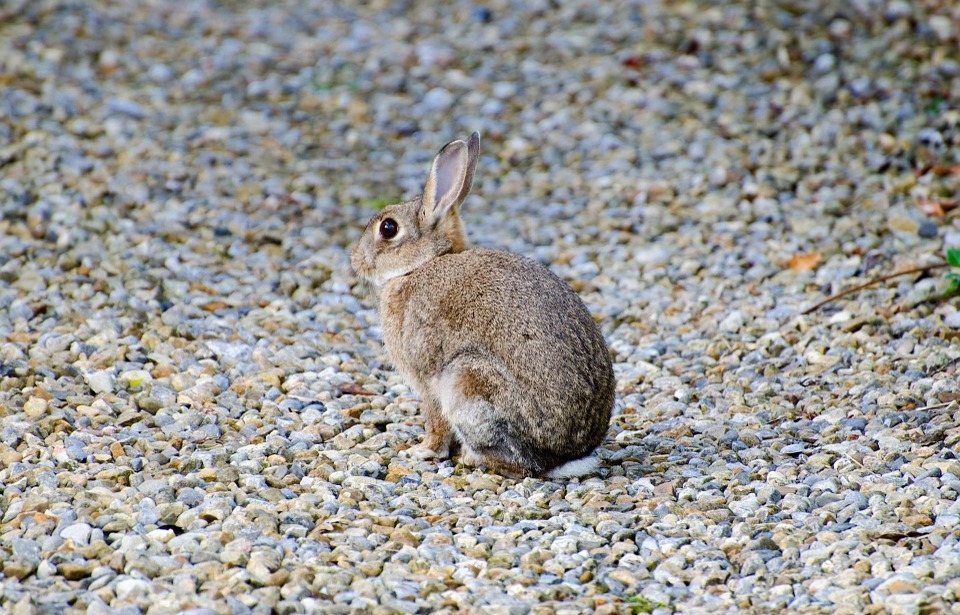This comprehensive guide provides a deep dive into the fascinating world of rabbit nutrition, exploring the best foods to keep your furry friend healthy and happy. We'll dissect the essential elements of a rabbit's diet, providing a detailed list of safe and unsafe foods, and answering common questions regarding what your rabbit can and cannot eat. By understanding these dietary guidelines, you can ensure your rabbit receives the optimal nutrition for a long and fulfilling life.
Part 1: Understanding the Importance of a Balanced Diet

1.1. The Digestive System: A Delicate Balance
- Hindgut Fermenters: Rabbits are hindgut fermenters, meaning they rely on their gut bacteria to digest fibre.
- Constant Digestion: Their digestive system is constantly working, requiring a steady supply of fibre to maintain a healthy gut microbiome.
- Dental Health: Rabbits' teeth grow continuously, and chewing on hay helps wear them down, preventing dental problems.
1.2. The Need for Fibre
- Essential for Digestion: Fibre provides the bulk for optimal gut motility, aiding in the passage of waste and preventing constipation.
- Supports Gut Bacteria: Fibre acts as fuel for the beneficial bacteria in the rabbit's gut, crucial for digestion and overall health.
- Promotes Dental Health: Chewing on fibrous hay helps wear down the rabbit's continuously growing teeth, preventing dental overgrowth.
1.3. The Role of Vitamins and Minerals
- Essential for Growth and Development: Vitamins and minerals support various bodily functions, including immune system function, bone health, and energy production.
- Diverse Sources: Fresh vegetables provide a wide array of vitamins and minerals, ensuring a balanced intake.
- Importance of Variety: Offering a variety of vegetables ensures a diverse range of nutrients, minimizing deficiencies.
Part 2: The Foundation of a Rabbit's Diet: Hay

2.1. Types of Hay: Choosing the Right One
- Timothy Hay: A staple for adult rabbits, high in fibre and low in calories and calcium, ideal for maintaining a healthy weight.
- Oat Hay: A good option for adult rabbits, slightly higher in calories than Timothy hay, suitable for rabbits with a higher energy demand.
- Meadow Hay: A mix of grasses, including Timothy, orchard grass, and others, offering a balanced nutritional profile.
- Orchard Grass Hay: Higher in protein and calories than Timothy hay, ideal for growing rabbits or pregnant/lactating females.
- Alfalfa Hay: High in calories, protein, and calcium, suitable only for young rabbits or pregnant/lactating females, and should be avoided in adult rabbits.
2.2. How Much Hay is Enough?
- Unlimited Access: Provide unlimited hay throughout the day, ensuring a constant supply.
- Fresh Hay Daily: Replace the hay daily to ensure freshness and prevent spoilage.
- Check for Consumption: Observe your rabbit's hay consumption to gauge their appetite and adjust quantities if necessary.
2.3. Storing Hay: Keeping It Fresh and Safe
- Clean and Dry Storage: Store hay in a dry, well-ventilated area, away from moisture and pests.
- Airtight Containers: Use airtight containers or bags to protect hay from moisture and dust.
- Regular Rotation: Rotate hay stock to ensure the freshest hay is consumed first.
Part 3: Fresh Vegetables: A Vital Source of Nutrients
3.1. Safe Greens and Leafy Vegetables
- Dark Leafy Greens: Romaine lettuce, kale, collard greens, mustard greens, dandelion greens (remove roots and stems), spinach (in moderation)
- Other Safe Greens: Parsley, cilantro, basil, dill, watercress, fennel, endive, escarole, arugula
- Tip: Introduce new greens gradually to monitor your rabbit's reaction and ensure they don't cause digestive upset.
3.2. Safe Fruits (In Moderation)
- Berries: Strawberries, blueberries, raspberries, blackberries
- Other Fruits: Apples (without seeds), pears, bananas (in limited amounts), mango, melon
- Important Note: Fruits are high in sugar, so offer them only in small quantities as occasional treats.
3.3. Safe Vegetables
- Cruciferous Vegetables: Broccoli, Brussels sprouts, cauliflower, cabbage (in moderation)
- Root Vegetables: Carrots, parsnips, sweet potatoes, turnips, beetroot
- Other Vegetables: Bell peppers, courgettes, cucumber, asparagus, peas, green beans, celery
3.4. Safe Herbs
- Common Herbs: Parsley, cilantro, dill, basil, thyme, rosemary, oregano, mint (in moderation)
- Note: Ensure the herbs are fresh and organic, free from pesticides and herbicides.
Part 4: Pellet Food: A Supplement, Not a Staple
4.1. The Purpose of Pellet Food
- Concentrated Nutrients: Pellets provide a concentrated source of vitamins, minerals, and other nutrients.
- Supplement to Hay and Vegetables: Pellets should be considered a supplement, not a primary food source.
- Important for Growing Rabbits: Young rabbits require higher calorie and nutrient intake, making pellets more essential during this phase.
4.2. Choosing the Right Pellet Food
- High-Quality Pellets: Opt for high-quality pellets that are low in sugar, high in fibre, and free from artificial colours and flavours.
- Look for Ingredients: Check the ingredient list, seeking pellets with Timothy hay or alfalfa hay as the primary ingredient.
- Avoid Additives: Avoid pellets with added sugars, artificial sweeteners, or other unnecessary ingredients.
4.3. How Much Pellet Food to Give
- Age and Size: The amount of pellets varies depending on the rabbit's age, size, and activity level.
- Consult with Your Veterinarian: Get expert advice on appropriate quantities for your specific rabbit.
- Gradual Introduction: If transitioning to a new type of pellet, introduce it gradually over several days to allow your rabbit to adjust.
Part 5: Foods to Avoid
5.1. Foods Toxic to Rabbits
- Chocolate: Contains theobromine, a substance toxic to rabbits, even small amounts can be fatal.
- Onions and Garlic: Can cause digestive upset, anaemia, and even death in rabbits.
- Avocado: Contains persin, a toxin harmful to rabbits, even the pit and leaves are dangerous.
- Rhubarb: Contains oxalic acid, which can lead to kidney stones and other health problems.
- Mushrooms: Can be poisonous to rabbits, even common varieties, some can cause liver and kidney failure.
- Nuts and Seeds: Can be high in fat and calories, leading to obesity and other health issues.
- Dairy Products: Rabbits lack the enzymes to digest lactose, making dairy products unsuitable.
- Alcohol: Highly toxic and can be fatal.
- Grains: Wheat, corn, barley, rice, oats can lead to digestive issues and obesity.
5.2. Foods to Offer in Moderation
- High-Sugar Fruits: Bananas, grapes, pineapple, mango, melon (only as occasional treats, in small amounts).
- High-Calcium Vegetables: Spinach, kale, collard greens (in moderation, limit to 1-2 times a week).
- Seeds and Legumes: Sunflower seeds, pumpkin seeds, beans (in limited quantities, only as occasional treats).
5.3. Human Foods to Avoid
- Processed Foods: Chips, cookies, candy, fast food (contain high amounts of sugar, salt, and unhealthy fats).
- Salty Foods: Salt can be harmful to rabbits, leading to dehydration and kidney problems.
- Spicy Foods: Can cause digestive upset and irritation in rabbits.
- Cooked Meat: Rabbits are herbivores and should not be given meat, it can cause digestive issues and health problems.
Part 6: Creating a Balanced Diet
6.1. Daily Feeding Schedule
- Hay: Unlimited access throughout the day.
- Fresh Vegetables: 1-2 cups per day, varied and fresh, depending on the rabbit's size and weight.
- Pellets: ?? cup per day for an adult rabbit, adjusting for size and activity level, consult with your veterinarian.
- Treats: Offer small amounts of safe treats, such as a few pieces of fruit or a small handful of herbs, 1-2 times a week.
6.2. Tips for Healthy Feeding
- Provide fresh water: Ensure a constant supply of clean water, change it daily.
- Gradually introduce new foods: Allow your rabbit to adjust to new foods to prevent digestive issues.
- Monitor your rabbit's weight: Maintain a healthy weight through proper feeding and exercise.
- Offer variety: Rotate different types of vegetables and herbs to keep your rabbit interested and ensure a balanced intake of nutrients.
- Consult with your veterinarian: Get expert advice on your rabbit's specific dietary needs, especially if they have any health conditions.
Part 7: FAQs
7.1. Can rabbits eat bread?
No, bread is not suitable for rabbits. It's high in carbohydrates and low in fibre, which can lead to digestive problems, obesity, and dental issues.
7.2. Can rabbits eat lettuce?
While some types of lettuce, like romaine, are safe for rabbits, others, such as iceberg lettuce, are low in nutritional value and can contribute to digestive problems. It's best to offer a variety of leafy greens instead of relying solely on lettuce.
7.3. Can rabbits eat carrots?
Carrots are a healthy treat for rabbits, but they should be given in moderation due to their high sugar content. Offer them as part of a balanced diet that includes plenty of hay and leafy greens.
7.4. Can rabbits eat apples?
Apples are safe for rabbits in small amounts, but remove the seeds and core as they contain cyanide. Offer only a few slices as an occasional treat.
7.5. Can I give my rabbit human food?
It's best to avoid giving your rabbit human food, as many common ingredients are harmful or unhealthy. Stick to a diet of hay, fresh vegetables, and a small amount of high-quality pellets.
7.6. How much hay should I give my rabbit?
Provide unlimited hay throughout the day, ensuring a constant supply. It should make up at least 80% of your rabbit's diet.
7.7. What if my rabbit doesn't like hay?
If your rabbit is reluctant to eat hay, try different types to find one they prefer. Consult with your veterinarian for guidance on encouraging hay consumption.
7.8. How often should I change my rabbit's water?
Change your rabbit's water at least once a day, or more often if it becomes dirty or contaminated.
7.9. Is it okay to give my rabbit commercial rabbit treats?
Commercial rabbit treats can be given in moderation, but choose those that are low in sugar and high in fibre. Avoid treats with artificial colors, flavors, or preservatives.
Everyone is watching
-

Do Rabbits Lay Eggs? (The Surprising Truth)
OTHER TYPES OF PETSThis article will unravel the common misconception that rabbits lay eggs, exploring the fascinating world of r...
-

Can Rabbits Eat Grapes? A Guide to Safe Rabbit Treats
OTHER TYPES OF PETSThis comprehensive guide will explore the safety and suitability of grapes for rabbits, providing detailed inf...
-

What's a Group of Rabbits Called? (A Comprehensive Guide)
OTHER TYPES OF PETSThis article delves into the fascinating world of rabbits, exploring the various terms used to describe a grou...
-

Predators That Hunt Rabbits: A Guide to Natural Enemies
OTHER TYPES OF PETSI've always been fascinated by the circle of life, that delicate dance between predator and prey. Growing up ...
-

Are Rabbits Nocturnal Animals?
OTHER TYPES OF PETSThe question of whether rabbits are nocturnal animals is a fascinating one, with a surprisingly complex answer...
